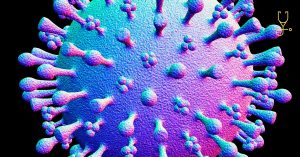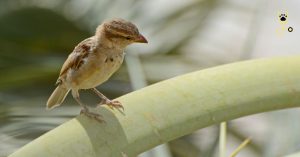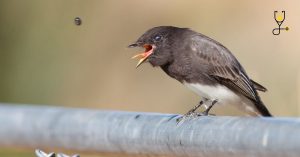As a bird owner, it is important to monitor your feathered friend’s health closely. From weight management and overall body condition to the plumage of their feathers, you can use visual cues from your pet bird to determine if they are in good physical shape. With the right understanding and preventive measures, you will be well on your way to keeping your companion living a long and healthy life!
In this blog post, we will explore how to decipher good body conditions in birds – describing each aspect as clearly as possible. Read on to find out what signs you should look for when discerning the well-being of your avian family member!
Ways to know whether your Bird Is in Good Body Condition
1. Overall Appearance
A bird in good body condition should have full, even plumage and be well-proportioned with no visible signs of feather loss or damage.
- Feel Your Bird’s Chest
Put your hand gently against its body, and you should be able to feel the outline of its breastbone (sternum). If it feels sharp or protruding, this could indicate that your bird is malnourished or underweight. On the other hand, if it feels soft and rounded, this may be a sign that your bird is overweight.

2. Weight:
The second step is to weigh your bird on a regular basis. Use an accurate scale and record any fluctuations in weight from week to week. Even slight changes can signal health issues such as malnutrition or illness. If you notice any significant decreases or increase in weight over time, consult with a vet right away.
3. Feather Quality
Good quality feathers should be sleek, and shiny, and not appear overly worn or damaged; any signs of feather loss, discoloration or bald patches may signify poor nutrition or health concerns.
- What to Look For
The first check is for overall feather condition. Healthy feathers should be glossy, flat, and close-fitting against the body. The tips of the feathers should not be frayed or broken off, and the shafts should appear smooth. Dull or disheveled feathers may indicate a nutritional deficiency or other health issues, like parasites.
- Check for Mites
Feather mites are tiny insects that live in bird plumage and feed on feather keratin and skin oils. If you see your bird preening excessively or plucking its own feathers, it could be a sign of an infestation. Inspecting the wings closely can reveal small white specks signaling mites; these spots will often cluster around the feather shafts.
- Check for Missing Feathers
Birds naturally molt a few feathers at a time, but if you notice patches of bald skin or unusually large numbers of missing feathers, it could indicate an underlying health issue such as stress, parasites, or trauma. Unexpected feather loss can also result from self-mutilation due to boredom or anxiety.
- Watch for Discoloration
Healthy feathers will be uniform in color and pattern. If you spot patches that differ significantly in hue from the surrounding feathers, this may be a sign of infection or disease; discoloration can also come from diet deficiencies, toxic exposure, and other environmental factors. Pay careful attention to any changes in your bird’s plumage to ensure it remains healthy.
- Inspect the Tail Feathers
Tail feathers are especially vulnerable to damage and disease, as they are subjected to more wear and tear than other feathers. Be sure to check the tail feathers regularly for signs of fraying or discoloration. If any of the tail feathers appear broken or missing, this may be a sign of trauma or illness. Taking note of your bird’s feather condition is an important part of its general healthcare routine, so keep an eye out for any changes in plumage that could signal underlying issues with your pet. With proper monitoring and nutrition, you can rest assured that your feathered friend is happy and healthy!

4. Perching
The ability to perch easily is a good indication of overall body condition; an overweight or malnourished bird may not be able to perch for extended periods of time.

5. Posture
A healthy bird will have a relaxed and alert posture, free from any signs of discomfort or stress, while an unhealthy bird may be lethargic with hunched shoulders and lowered head.
6. Activity Level
A bird in good body condition should show a normal level of activity, with adequate play and exploration behavior.
7. Monitor Appetite/Diet
Another task is to monitor your bird’s appetite and diet. Most birds have an appetite that can fluctuate throughout the day, but an overall healthy appetite is a sign that they are receiving enough nutrition and calories.
Make sure your bird is getting a balanced and nutritious variety of foods, including vegetables, fruits, seeds, nuts, and high-quality pellets. Avoid giving them too many treats or “junk food” as these can contribute to obesity and nutritional deficiencies. If you are unsure about what to feed your pet, consult with a professional for advice on the best type of diet for its species.
8. Droppings
Healthy droppings should be even and solid in texture, with no foul smell or discoloration.

9. Breathing
A bird’s breathing pattern should be consistent; any difficulty or labored breathing could be a sign of respiratory illness.
10. Vocalizations
Any changes to your bird’s normal vocalizations may indicate health issues or discomfort.
11. Eye Color
Healthy birds have bright, clear eyes with no visible signs of discharge or redness.
12. Beak and Feet
The beak should appear smooth and evenly shaped, while the feet should be free from any cuts or sores that may indicate an underlying health problem.
13. Flights
A bird in good body condition should have strong and steady flight capabilities; any signs of faltering or difficulty with flying could be an indication of exhaustion or weakened muscles.
14. Immunity
Birds that are in good body condition tend to have a strong immune system, allowing them to fend off diseases more easily than their unhealthy counterparts.
15. General Disposition
The way your bird interacts with its environment can tell you a lot about its overall health and well-being; birds that appear content and unafraid are typically in good body condition.

16. Identify Signs of Stress or Illness
Finally, be on the lookout for signs that could indicate stress or illness in your bird. Unusual behavior like aggression or lethargy can signal underlying health issues such as parasites, infection, or viral diseases. Additionally, pay attention to any changes in appetite or vocalization that could be a cause for concern. If you are concerned about your bird’s health, contact an avian veterinarian right away.

Conclusion
Keeping an eye on your bird’s body condition is essential for its overall well-being. By following the tips outlined above, you can ensure that your bird is receiving adequate nutrition, exercise, and appropriate medical care. Taking the time to monitor and assess your bird’s health will help keep it happy and healthy for years to come! By taking the time to monitor and assess your bird’s health, you can ensure that it remains healthy and happy for years to come! Even small changes in body condition can indicate potential health problems, so be sure to consult an avian veterinarian if you notice any signs of distress or discomfort. With proper care and a watchful eye, your feathered friend will be soaring high in no time!
FAQs
Q: How can I tell if my bird is healthy?
A: There are several signs that can indicate whether your bird is in good health, including feather quality, perching, posture, activity level, appetite, droppings, breathing, vocalizations, eye color, beak and feet condition, flight capabilities and overall disposition. If you notice any of these signs changing or appearing abnormal in any way it may be time to consult an avian veterinarian for further assessment.
Q: What should I look for when assessing my bird’s body condition?
A: When assessing your bird’s body condition you will want to take note of its weight (which should be within the normal range for its species), feather quality (which should be full and glossy), posture (which should be alert and erect, not hunched or lethargic) and activity level. Additionally, you will want to check its appetite (which should be consistent throughout the day) and droppings (which should appear solid in texture with no foul odor). Finally, assess its breathing (which should be regular without any labored breathing), vocalizations (which should remain unchanged), eye color (which should remain clear and bright with no signs of redness or discharge), and general disposition. If at any point you notice changes to these factors it may indicate a health issue so consult an avian veterinarian for further assessment.
Q: What can I do to make sure my bird remains healthy?
A: Ensuring your bird remains healthy requires providing it with proper nutrition, adequate exercise, and appropriate veterinary care. Make sure to feed your bird a balanced diet that is tailored to its specific species requirements, provide ample opportunities for physical activity (such as perching and climbing), and schedule regular visits with an avian veterinarian for check-ups. Additionally, monitoring your bird’s body condition on a daily basis will help you identify any potential health issues before they become serious problems. Taking these steps will go a long way toward ensuring your feathered friend stays happy and healthy!
Q: What should I do if I notice any changes in my bird’s body condition?
A: If you notice any changes in your bird’s body condition, such as a sudden weight loss or change in activity level, it is important to consult an avian veterinarian for further assessment. Early diagnosis and treatment of potential health issues can help ensure that your bird remains healthy and happy for years to come! So don’t hesitate to contact an avian veterinarian if you ever have concerns about your feathered friend’s wellbeing.
Q: What are some common signs of illness in birds?
A: Common signs of illness in birds include a decrease in appetite, weight loss, changes in vocalizations, labored breathing, discharge from the eyes or nose, lethargy and fluffed feathers. If you notice any of these symptoms it is important to contact an avian veterinarian for further assessment as soon as possible. Early diagnosis and treatment can help ensure that your bird remains healthy and happy for years to come!
Q: How often should I check my bird’s feathers?
A: The frequency of feather checks depends on the individual pet, but in general it is a good idea to inspect them at least once a month. Pay special attention to any changes in color or texture that could signal an infection or disease.
Q: What signs should I look for when checking my bird’s diet?
A: Be sure your bird has access to a variety of nutritious foods, such as vegetables, fruits, nuts, and high-quality pellets. Avoid giving too many treats or “junk food” as this can lead to nutritional deficiencies and obesity. If you are unsure what type of diet is best for your pet, consult a professional for advice.
Q: How important it is for birds to be a healthy weight
A: The most important factor when assessing the body condition of your feathered friend is their weight. A bird that is too light can be indicative of malnutrition or underlying health issues, while an overweight bird may also have additional problems with mobility and potential feather damage due to extra strain on the wings.
Q: What should I do if I notice any significant changes in my bird’s weight?
A: If you observe a sudden or drastic decrease in your pet’s weight, consult with an avian veterinarian right away. This could be a sign of an underlying health issue that needs to be addressed as soon as possible. Additionally, weigh your bird regularly to monitor any fluctuations in weight.
Q: What should I do to ensure my pet bird’s long-term health?
A: The best way to ensure your pet’s long-term health is to provide it with a balanced and nutritious diet, regular checkups, and monitor its behavior for any signs of stress or illness. Additionally, be sure to weigh your bird often and take note of any changes in weight from week to week. With proper care and monitoring, you can help keep your feathered friend healthy and happy!








